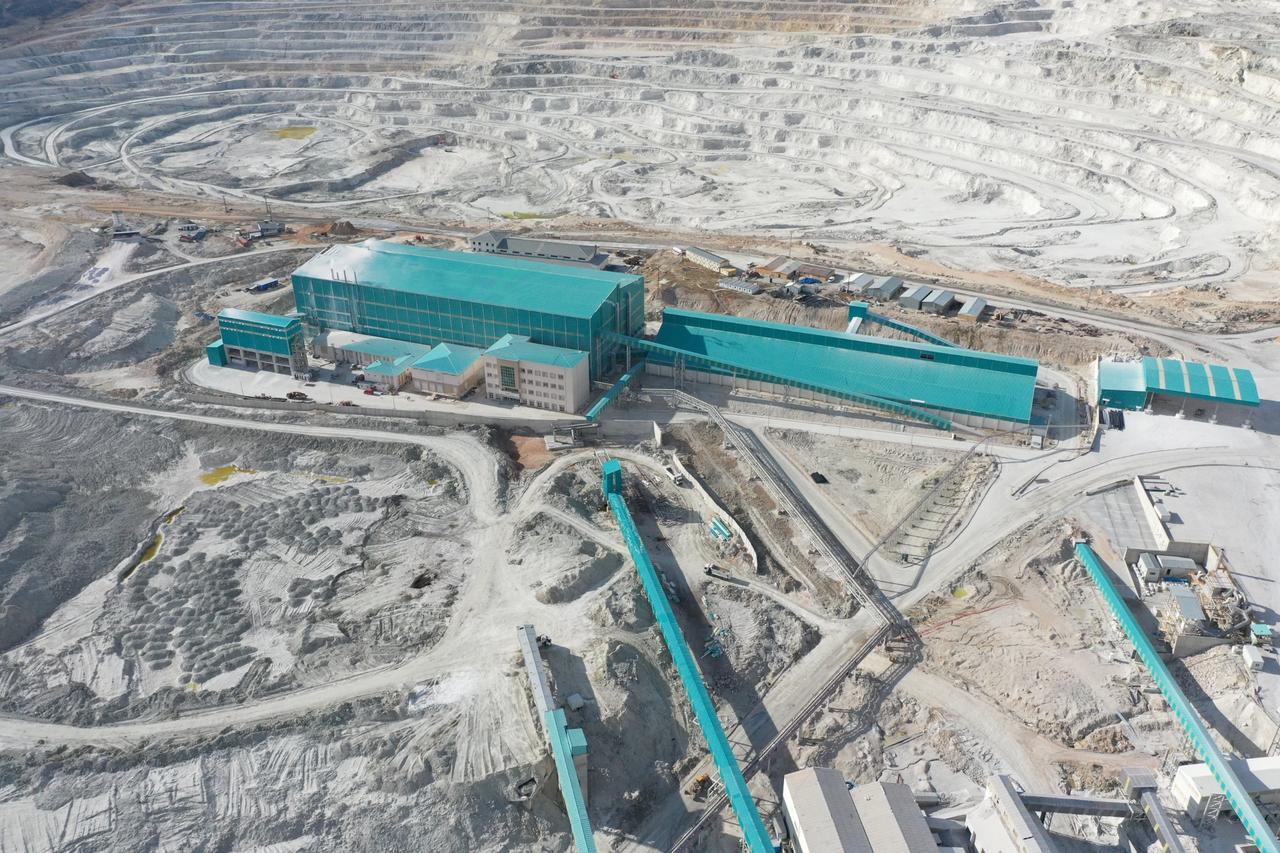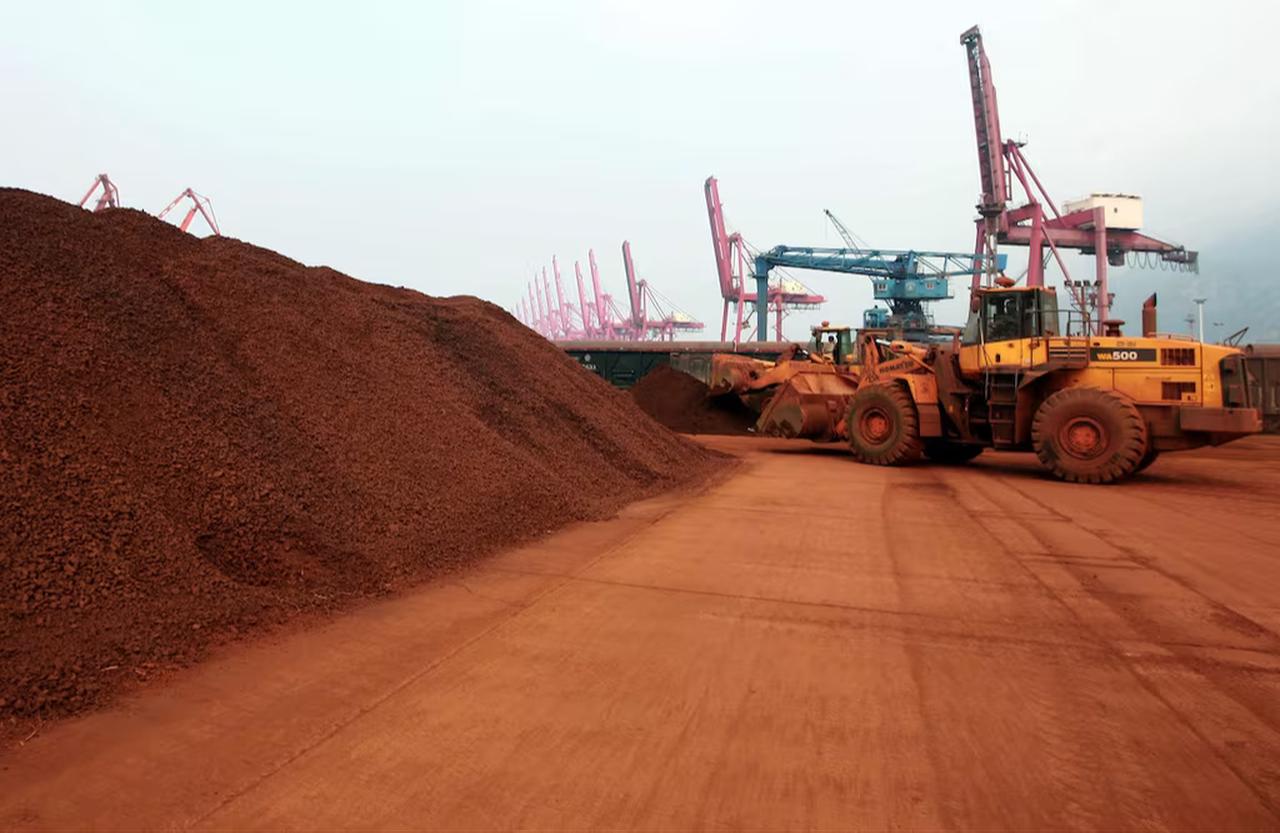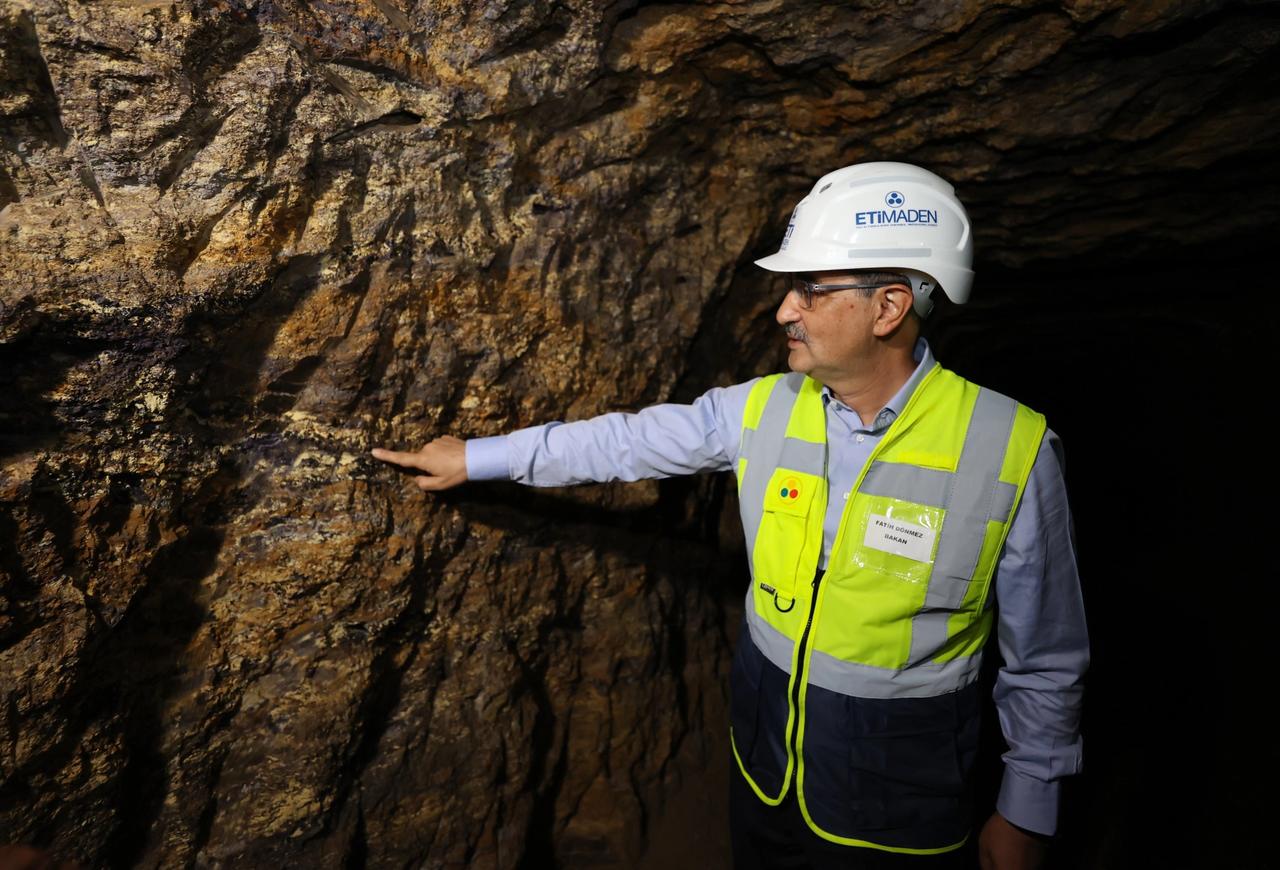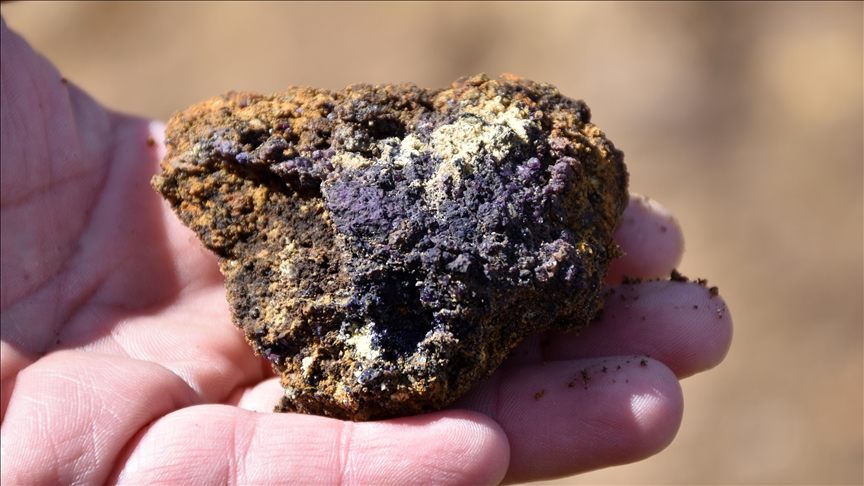
President Recep Tayyip Erdogan announced on Wednesday that Türkiye has identified the world's second-largest rare earth element reserve, containing an estimated 694 million tons of mineral resources in Eskisehir province, as the government moved to dismiss claims the strategic site would be transferred to foreign control.
The newly discovered site contains 10 of the 17 known rare earth elements, materials critical to defense industries, renewable energy systems, electric vehicles, communications and space technology.
Rare earth elements, often dubbed the “vitamins” of modern technology, sit at the heart of everything from smartphones and drones to electric vehicles and defense systems.
Despite their name, these minerals are not particularly rare—but their extraction and refinement are technologically challenging and environmentally taxing. This complexity has allowed China to dominate the global market, accounting for nearly 70% of current production and close to 90% of refining capacity.
Türkiye, however, is emerging as a potential alternative supplier. The country already accounts for between 5% and 10% of global output in certain rare earths and related critical minerals such as boron and antimony, particularly in Western Anatolia.
These resources position Türkiye as an important, though underdeveloped, player in the global race for strategic minerals.
Ankara’s rare earth strategy represents a critical window of opportunity—one that can both advance the nation's pursuit of strategic autonomy and position it as a pivotal link in the restructured global supply chain, using this leverage to strengthen its alliances within the Western bloc while reducing collective dependence on China.

The global imbalance in rare earth production traces back to the decades of globalization between the 1990s and 2010s. During this period, China became the world’s primary processing hub, offering low-cost operations that other nations found difficult to compete with.
Environmental degradation from rare earth extraction was largely tolerated as an unavoidable cost of industrial growth, while the rest of the world grew reliant on Chinese supply.
That complacency ended around 2016, when Washington began recognizing the national security risks of this dependency.
During Donald Trump’s presidency, the U.S. launched a federal initiative encouraging domestic refining capacity, framing rare earths as both a defense and economic security issue.
By January 2020, the Trump administration’s executive orders officially designated rare earth supply as a matter of national security—signaling the start of a new phase in U.S.-China rivalry.
In response, Beijing began to leverage its near-monopoly power by limiting exports, and the move had immediate global repercussions.
Turkish industries, ranging from petrochemicals and textiles to consumer goods, found themselves forced to source alternative materials from European suppliers at up to three times the previous cost.
The disruption underscored how deeply rare earth dependencies penetrate industrial economies.
Ankara sees opportunity in this shift. Turkish officials have emphasized the country’s ambition to become one of the world’s top five producers of rare earth elements—a goal aligned with its broader agenda of industrial independence.
This vision carries a dual message: reinforcing domestic supply security and signaling readiness to support the Western bloc in reducing dependence on China.
For Türkiye, advancing domestic rare earth production could not only strengthen its industrial base but also enhance its strategic value within Western supply chains.
Amid those developments, last year Türkiye Tjoined the Minerals Security Partnership (MSP) forum to cooperate with the United States, the European Union and others on the production of critical raw materials and rare earth elements.
The MSP forum, launched in 2024, brings together partners and mineral-producing countries, such as Kazakhstan, Namibia, Ukraine and Uzbekistan, to push against Chinese dominance in the field.

Yet, extracting and refining rare earths is not without consequences. The process involves hazardous waste and environmental risks that demand careful regulation and public transparency. Türkiye faces the challenge of balancing sustainability with industrial ambition.
Globally, the transition to green energy further complicates this balance. Renewable energy systems rely heavily on rare earths—particularly for wind turbines, solar storage, and electric vehicle batteries. The paradox is evident: producing materials for a greener future often requires environmentally sensitive mining practices.
Economist Ibrahim Turhan argues that with proper planning, Türkiye can mitigate these risks. Investing in cleaner extraction technologies and strict environmental oversight could make Türkiye’s rare earth industry both competitive and sustainable.

The timing is critical as Türkiye has already invested in battery production facilities, essential for both electric vehicles and renewable energy storage.
These developments reflect Ankara’s intent to integrate rare earth mining into a broader strategy of energy security and technological resilience.
As the global rare earth supply chain fractures under geopolitical tension, Türkiye’s position becomes more significant. If managed prudently—with environmental foresight, technological investment, and diplomatic balance—Ankara could transform its mineral wealth into strategic leverage.
According to a roadmap outlined by Türkiye’s Academy of National Intelligence, the country ought to lay out a phased plan to develop a self-sufficient rare earth ecosystem by 2035. The strategy envisions three major stages: building foundational infrastructure, scaling up production, and achieving global competitiveness.
Between 2025 and 2028, efforts will focus on confirming reserves—especially in Beylikova, home to one of the world’s largest untapped deposits—and launching a pilot processing facility. Collaboration between universities and industry will also prioritize R&D on magnetic alloy technologies. By 2027, Türkiye aims to reach an annual production capacity of 1,200 tons and ensure that at least one-fifth of its magnetic powder prototypes are domestically produced.
The second phase, covering 2028–2032, shifts toward industrial scale. Plans include establishing integrated refineries with multi-technology licenses and forming international partnerships under frameworks such as the Minerals Security Partnership. By 2030, half of Türkiye's rare earth output is expected to be converted into magnetic powder, with an annual target of 500,000 tons of processed ore and 2,500 tons of NdFeB magnet production.
The final phase (2032–2035) aims for global positioning. It foresees investments in sintered magnet and electric motor assembly lines, as well as expanded recycling capacity from secondary raw materials such as e-waste and scrap magnets. By 2035, Türkiye targets a value-added multiplier exceeding ten—from raw ore to finished product—and plans for recycled materials to supply roughly a quarter of total rare earth input.
If realized, this roadmap would mark a turning point: shifting Türkiye from a raw material supplier to a technologically capable, environmentally aware producer at the heart of a rapidly transforming global supply chain.